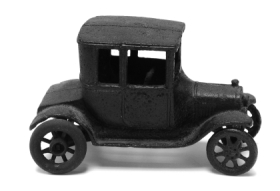 When America's biggest corporations make news for their taxes, it's usually for how little they pay. One recent study, for example, argues that 26 big corporations, including AT&T, Boeing, and Citigroup, paid their CEOs more than they paid Uncle Sam in federal income tax. (Comparisons like that might bring to mind an old Babe Ruth quote. In 1930, a reporter pointed out that Ruth's $80,000 salary was more than the President's — to which the Babe replied "I know, but I had a better year . . .") Now, another corporate giant is making headlines for its taxes. And for once, the surprising news involves how much it paid, not how little.
When America's biggest corporations make news for their taxes, it's usually for how little they pay. One recent study, for example, argues that 26 big corporations, including AT&T, Boeing, and Citigroup, paid their CEOs more than they paid Uncle Sam in federal income tax. (Comparisons like that might bring to mind an old Babe Ruth quote. In 1930, a reporter pointed out that Ruth's $80,000 salary was more than the President's — to which the Babe replied "I know, but I had a better year . . .") Now, another corporate giant is making headlines for its taxes. And for once, the surprising news involves how much it paid, not how little.
Exxon and Mobil are iconic corporate names. Both began life as parts of John D. Rockefeller's original Standard Oil Company. Both were spun off in 1911 when the U.S. Supreme Court found Standard Oil guilty of illegally monopolizing the oil refining industry. ("Standard Oil Company of New Jersey" eventually grew into Exxon, while "Standard Oil Company of New York" morphed into Mobil.) When the two giants





